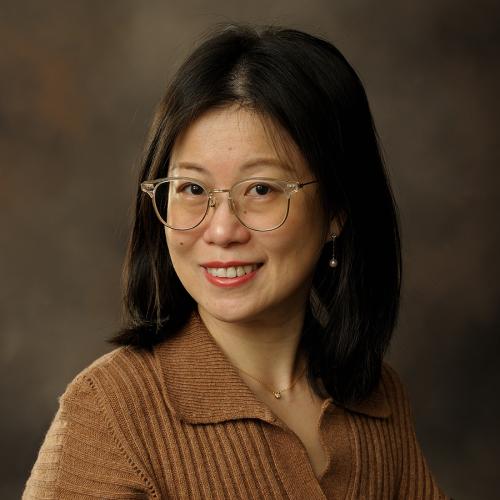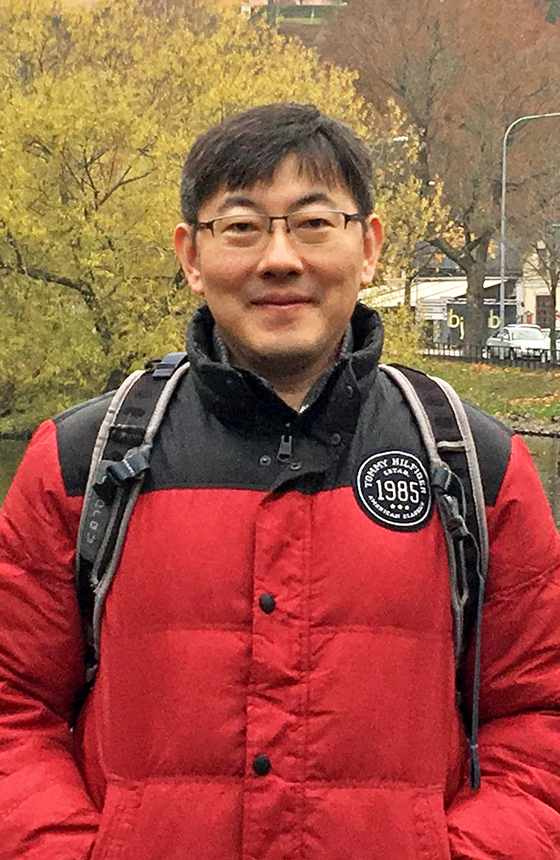1月17日,国际计算机学会(Association for Computing Machinery,ACM)公布了2023年度杰出会员(ACM Distinguished Members)名单,全球共有52名学者获此殊荣。
ACM创立于1947年,是世界上第一个科学性和教育性的计算机学会,也是目前全球最大的计算机领域学术组织,在190多个国家和地区拥有超过10万名会员,其所评选的图灵奖(ACM Turing Award)被公认为是计算机领域的最高奖项。ACM杰出会员表彰那些在过去10年中拥有至少15年专业经验和5年专业会员资格的ACM会员,他们取得了重大成就,或对计算机领域产生了重大影响。

他是亚太网络研讨会(APNet)指导委员会联合主席,并担任SIGCOMM、NSDI、CoNEXT、INFOCOM等程序委员会会员,以及IEEE/ACM Transactions on Networking、Big数据和云计算编委会会员。

郑振刚是香港大学 (HKU) 计算机科学系教授。他的研究兴趣是数据科学、大图分析和不确定数据管理。
2005年至2008年,他担任香港理工大学(HKPU)电子计算系助理教授。他于12005年在普渡大学计算机科学系获得博士学位。
他曾荣获2020年SIGMOD研究亮点奖、2021年HKICT奖和2021年香港大学知识交流奖(工程)。
他还荣获香港大学颁发的2011-12年度杰出青年研究员奖。
他于2011年获得Universitas 21 Fellowship,并于2006年和2007年两次获得香港浸会大学计算机学院颁发的表现奖。他是香港浸会大学专业进修学院的学术顾问。他是 IEEE、ACM、ACM SIGMOD 和 UPE 的成员。
他曾担任IEEE ICDE 2021的PC联合主席,并一直在 SIGMOD、VLDB、ICDE、KDD、IJCAI、AAAI 和 TODS 等领先数据库会议和期刊的程序委员会和评审小组中任职。
![]()
他目前的研究兴趣包括物联网、嵌入式人工智能、移动计算、普适计算和大数据分析。

她的论文曾获得FAccT 2022的杰出论文奖,以及 ICDM 2016、ICDM 2010 和SDM 2010的会议最佳论文奖。他是 AAAI 和IEEE的高级会员,IEEE BigData 2023项目联合主席。

Yang Li是Google Research 的高级研究科学家,也是华盛顿大学 CSE 的附属教员。他是中国科学院计算机科学博士,在加州大学伯克利分校电子计算机与计算机系统博士后研究。
他通过开发下一个应用程序预测和手势搜索等有影响力的产品功能,开创了Android设备上交互式机器学习的先河。

梁教授担任 ACM Transactions in Embedded Computer Systems 的副主编(TECS) 并在相关领域的主要会议的程序委员会中任职,包括(HPCA、PACT、CGO、ICCAD、ICS、CC、DATE、CASES、ASPDAC、ICCD)。

Dan Wang在北京大学获得了计算机科学学士学位,在斯西储大学获得了硕士学位,在加拿大西蒙弗雷泽大学获得了博士学位。
他是香港理工大学电子计算学系教授。他的研究兴趣包括传感器网络、互联网架构和协议。最近,他正在研究云计算和大数据,以支持智慧城市的跨学科发展。

他组织了MIDDLEWARE 2013 Doctoral Symposium、FSE 2014 SEES Symposium、COMPSAC 2017 SETA Symposium和INTERNETWARE 2018,服务于ESEC/FSE、ICSE和ASE等程序委员会,并担任了Journal of Software: Evolution and Process、Journal of Computer Science and Technology、Frontiers of Computer Science和《计算机科学》等期刊的编委工作。

张美慧教授是北京理工大学计算机学院教授,博士生导师,入选国家级青年人才。
于2013年毕业于新加坡国立大学,获计算机科学博士学位。2014年至2017年曾在新加坡科技设计大学工作,任助理教授。
主要研究方向为大数据管理与分析、海量数据集成、新型数据库系统、区块链及人工智能等。已发表计算机学会(CCF)推荐A类论文近50篇,其中包括数据库及数据挖掘领域顶级会议ACM SIGMOD、VLDB、ICDE、KDD,以及顶级期刊VLDB Journal、TKDE等。
近年来,先后主持参与了多个国家级重点科研项目,多次担任如ACM SIGMOD,VLDB,ACM MM等国际顶级学术会议程序委员会委员,以及如TKDE,VLDBJ,TODS等国际顶级期刊审稿人。
担任VLDB理事会理事(截止目前国内仅有三位入选)、ACM/IMS Transactions on Data Science (TDS) 期刊副主编、Springer Distributed and Parallel Databases期刊领域主编、国际顶级会议IEEE ICDE 2018、 ICDE 2022领域主席、VLDB 2018、VLDB 2019、VLDB 2020、 VLDB 2023、ACM SIGMOD 2021、 SIGMOD 2023副主编、DASFAA 2017及EDBT 2022 Demo Track及BOSS 2018 Workshop联合主席等。
荣获2019年度计算机学会CCF-IEEE CS青年科学家奖, 2020年度VLDB青年研究贡献奖(截止目前亚洲仅有两位),获VLDB 2019最佳论文奖、ICDE 2018最佳论文提名奖及ACM SIGMOD 2019 突出研究奖。
|
Murali Annavaram |
For contributions to heterogeneous computer systems design for providing and advancing energy-efficient computing |
|
Vijay Arya |
For contributions to optimization, statistical inference, and machine learning in network design |
|
Pernille Bjorn |
For contributions to understanding global software development, healthcare technologies, tech entrepreneurship, and equity in computing |
|
Kai Chen |
For contributions to the design and implementation of data center networks |
|
Reynold Cheng |
For contributions to algorithms on large-scale data processing |
|
Carla Fabiana Chiasserini |
For contributions to the design of high-performance mobile networks |
|
Mauro Conti |
For research contributions to network, mobile, and embedded systems security |
|
Sanmay Das |
For contributions to AI and economics, AI for social good, and service to the profession |
|
Jeff Forbes |
For advancing efforts to address the critical issues of education and broadening participation in computing |
|
Auroop R. Ganguly |
For foundational advances, sustained service, and entrepreneurial accomplishments in climate data mining and machine learning |
|
Floris Geerts |
For contributions to principles of data management and services to the community |
|
Werner Geyer |
For contributions to computer-supported collaborative work, AI-assisted collaboration, and social software in the enterprise |
|
Roberto Giacobazzi |
For contributions to the clarification of the roots of precision and imprecision in program analysis. |
|
Eric Gilbert |
For influential contributions to the study and building of social computing systems. |
|
Daniel Grosu |
For contributions to resource management in cloud and edge computing |
|
Boris Grot |
For contributions to computer architecture in the areas of network-on-chip and cloud-native servers |
|
Tao Gu |
For contributions to mobile and wireless sensing systems |
|
Jingrui He |
For contributions to modeling data heterogeneity, connecting theory, methodology and real applications |
|
Eva Hornecker |
For contributions to tangible and embodied interaction theory research, and the founding of the ACM TEI conference and community |
|
Christopher Hundhausen |
For leadership and achievement in computing education research |
|
Kyle Jamieson |
For contributions in wireless sensing and localization |
|
Shaun K. Kane |
For leadership in developing technology for people with disabilities, including non-visual UIs and ability-based design |
|
Jofish Kaye |
For contributions to multimodal human-computer interaction and service leadership to the ACM |
|
Amy J. Ko |
For contributions to human-centered theories of program understanding and the development of tools and learning technologies |
|
Oren Kurland |
For contributions to the field of information retrieval, around formal models and game theoretic approaches |
|
Yang Li |
For research contributions intersecting human-computer interaction and artificial intelligence |
|
Yun (Eric) Liang |
For contributions to hardware and software co-design for domain specific accelerators |
|
Lauri Malmi |
For contributions to international computing education research |
|
Tommaso Melodia |
For contributions to architectures and algorithms for software-defined wireless networked systems |
|
Ishai Menache |
For improving cloud efficiency via principled algorithmic solutions |
|
Anders Møller |
For outstanding contributions in static and dynamic program analysis |
|
Briana Morrison |
For scholarship, leadership, and service to computing education and its communities |
|
Santosh G Nagarakatte |
Novel techniques for building formally verified compilers, correct math libraries, and hardware-software interfaces |
|
Arnab Nandi |
For contributions to human-in-the-loop data infrastructure, next-generation query interfaces, and interactive data analytics systems |
|
Michael E. Papka |
For contributions in virtual reality, collaborative environments, scientific visualization, as well as research and operations in high performance computing |
|
Mathias Payer |
For contributions to protecting systems in the presence of vulnerabilities |
|
Sean Peisert |
For contributions to research in securing large-scale infrastructure |
|
Denys Poshyvanyk |
For contributions to integrating software analyses and machine learning for effective software evolution and maintenance |
|
Amir Rahmani |
For research in leveraging IoT data and AI for health modeling and lifestyle recommendation systems |
|
Amanda Randles |
For contributions to advancements in high-fidelity, multi-physics circulatory modeling methods using supercomputing for medical applications |
|
Lionel P. Robert, Jr. |
For contributions to the study of technology-mediated human and human-robot collaborations |
|
Dario Rossi |
For multi-disciplinary approaches and his pioneering adoption of machine learning in networking research |
|
Sudeep Sarkar |
For contributions to the advancement computer vision and gait biometrics |
|
Yan Solihin |
For contributions to shared cache architecture, secure processors, and persistent memory |
|
Nesime Tatbul |
For foundational scientific contributions in streaming data systems and time series analytics |
|
Nicola Tonellotto |
For contributions to the design of efficient algorithms for information retrieval systems |
|
Daniel Vogel |
For contributions to Human-Computer Interaction and applications to novel forms of interaction |
|
Dan Wang |
For contributions to data-driven applications and platforms for cyber-physical energy systems |
|
Adam Wierman |
For contributions to online algorithms, scheduling theory, and their applications to sustainable computing |
|
Lauren Wilcox |
For contributions to research in responsible AI, human–computer interaction, and health informatics |
|
Chang Xu Nanjing University |
For contribution to quality-assured software adaptation and evolution |
|
Meihui Zhang |
For contributions to end-to-end data analytics and verifiable data management |

